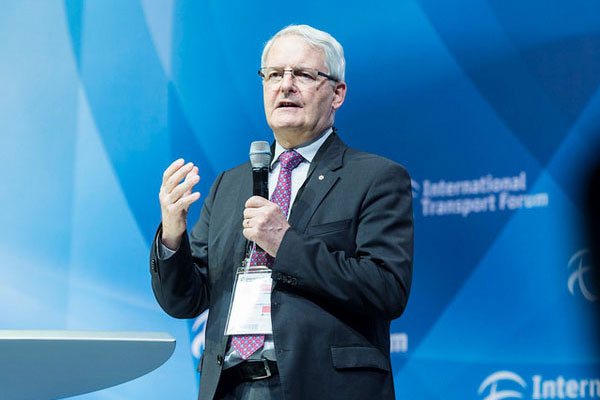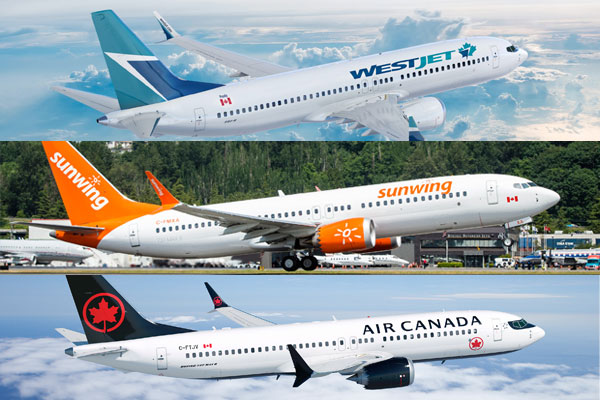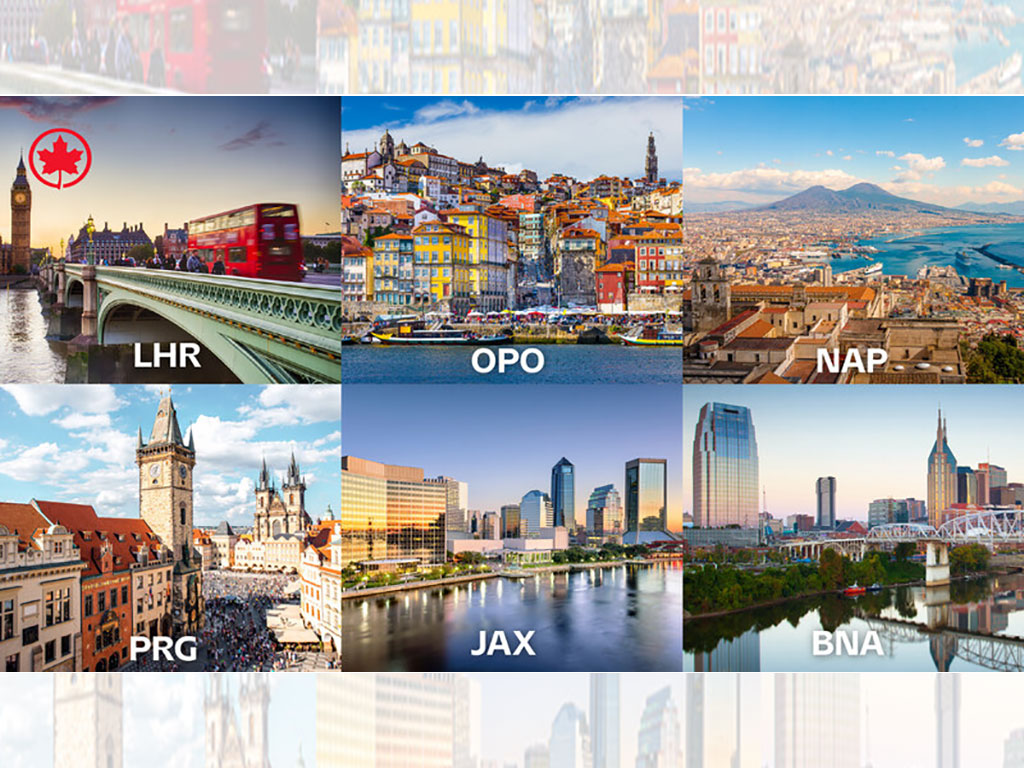FAA Grounds Boeing 737 MAX 8
After Canadian Transport Minister, Marc Garneau announced that he was issuing a safety notice to ground the Boeing 737 MAX 8, the US Federal Aviation Administration (FAA) has followed suit.
The FAA issued an order for the temporary grounding of Boeing 737 MAX aircraft operated by U.S. airlines or in U.S. territory yesterday (March 13).
The agency made this decision as a result of the data gathering process and new evidence collected at the site and analyzed yesterday. That evidence, together with newly refined satellite data available to FAA yesterday morning, led to this decision; with US President Donald Trump announcing that he had signed an emergency order to that effect.
The grounding will remain in effect pending further investigation, including examination of information from the aircraft’s flight data recorders and cockpit voice recorders. An FAA team is in Ethiopia assisting the NTSB as parties to the investigation of the Flight 302 accident. The agency will continue to investigate.
How long the grounding of the Boeing 737 MAX 8 will remain in effect isn’t clear at the moment.
Yesterday morning, Transport Minister, Marc Garneau said that, “Following advice from Transport Canada Civil Aviation experts, as a precautionary measure, I am issuing a safety notice to address this issue. This safety notice restricts commercial passenger flights from any air operator, both domestic and foreign, of the Boeing 737 MAX 8 and 9 aircraft – from arriving, departing, or overflying Canadian airspace.”
And he said that: “This safety notice is effective immediately, and will remain in place until further notice.”
Canada’s decision to take action comes as a result of new information, with Minister Garneau explaining that, “The advice the experts have provided is based on the information they have been receiving; the requirements for new procedures and training for Boeing 737 MAX 8 and 9 flight crews they have already put in place; and the latest information available from the incidents.
Too Soon To Speculate
He noted that, “It is too soon to speculate about the cause of the accident in Addis Ababa, and to make direct links to the Lion Air accident in Indonesia in October 2018; however, my department has been closely monitoring the investigations by the National Transportation Safety Board (NTSB), the Federal Aviation Administration (FAA) and the Ethiopian Civil Aviation Authority.”
Minister Garneau explained that, “Following the Lion Air accident, Transport Canada adopted the Federal Aviation Administration’s (FAA) Airworthiness Directive. It also required that Canadian airlines who operate the Boeing 737 MAX 8 and 9 aircraft, put new procedures in place and implement additional crew training.”
Said the Minister, “We were one of the first countries to do so and not all countries have implemented this change. And these Canadian requirements for new procedures and training to protect against the risk identified went above and beyond the measures directed by the United States Federal Aviation Administration and Boeing – and above and beyond what other nations have done.”
Enviable safety record
He also pointed out that, “Canada has an enviable aviation safety record because of the professionalism and safety-first focus of Canada’s aviation industry – those who design and manufacture aircraft, those who maintain them, our airports, our air traffic controllers and of course those who operate and fly the aircraft. It also due to the world-class knowledge, expertise and relentless focus on safety by Transport Canada officials who are responsible for developing regulations and ensuring compliance with those regulations.”
And he added, “My departmental officials continue to monitor the situation and I will not hesitate to take swift action, should we discover any additional safety issues.”
At a press briefing in Ottawa, the Minister said that his department has been in touch with Air Canada, WestJet and Sunwing about the situation, noting that all of them recognize the importance of safety.
He said that he expects that there will be disruptions as a result of the restrictions and “that’s unfortunate, but it has to be done for safety reasons.”
“The airlines have been very understanding and hopefully, we’ll be able to get the situation cleared up in the next couple of weeks – but it had to be done for safety reasons.”
CANADIAN CARRIERS RESPOND — UPDATED
AIR CANADA – UPDATE
Following the suspension of operations of Boeing 737 MAX aircraft in Canada, Air Canada points out that “it is important to note that the vast majority of our flights are operating as per our normal schedule.”
Air Canada noted that “we typically operate approximately 75 737MAX flights daily out of a total schedule of approximately 1600 daily flights system-wide, representing less than six percent of our total flying. We have a total fleet of 400 aircraft (including 24 737MAX), comprising Air Canada mainline, Air Canada Rouge and Air Canada Express aircraft.”
The carrier said that it is: “making adjustments to our schedule to minimize the disruption to customers as much as possible, by optimizing the deployment of the rest of our fleet and looking at alternative options, including accommodating customers on other airlines.”
And it continued: “As an example of some of our adjustments to 737MAX flights cancelled, we have made arrangements including re-scheduling widebody aircraft to serve Hawaii starting [March 13]. Some flights will operate according to schedule with mainline or Air Canada Rouge aircraft, such as Montreal-Martinique and Montreal-Guadeloupe. Other routes, notably Halifax-London and St. John’s-London are cancelled in the short term, with passengers re-routed through our Montreal and Toronto hubs.”
The airline also pointed out that: “Customers travelling soon should contact Air Canada’s Call Centres or their travel agents, with priority given to customers travelling within the next 72 hours. We have in place a rebooking policy, space permitting and without additional fees for affected customers. Given the magnitude of our 737 operations, which on average carry nine to twelve thousand customers per day, customers can expect delays in rebooking and in reaching Air Canada’s Call Centres. If customers wish to know what type of aircraft they are flying on, they should go the Manage My Bookings section of www.aircanada.com.”
WESTJET – UPDATE
Arved von sur Muehlen, executive vice president & chief commercial officer, WestJet, reached out to agents following the Transport Canada announcement, stating that: “We’d like to reassure you that over 92% of our fleet is operating as usual. While there may be some interruptions to our schedule as we mitigate the impact of this decision, you can book with confidence knowing that WestJet continues to fly throughout our network with the safety of guests and employees at the forefront.”
Sunwing
Sunwing Airlines – which had already taken its Boeing 737 MAX 8s out of service before Minister Garneau’s announcment – said it supports Transport Canada on their decision relating to the Boeing 737 MAX 8 and will continue to follow their lead on this matter.
The carrier said, “We are finalizing a revised schedule to accommodate the temporary removal of our MAX aircraft from service and we appreciate the patience of our retail partners and customers while we work to communicate these updates. We will endeavour to minimize the impact of these schedule changes and we will not be cancelling any flights as a result.”




